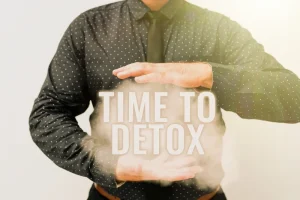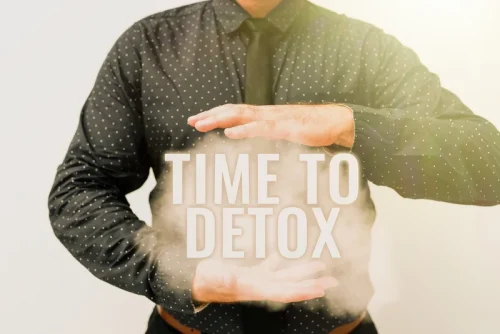
As a parent or guardian, it’s normal to feel scared, angry, or confused if you discover your child is drinking. But it’s important to remember that you still have a major impact on the choices that your child makes, especially during their preteen and early teen years. It can test your patience and shatter your feelings. Do your best to understand that they’re dealing with an illness. When someone gets too drunk or hungover to fulfill their basic responsibilities in life, they often rely on those around them to get the job done.
Check your drinking

In most places, it’s legal and socially acceptable for an adult to enjoy an alcoholic drink. There’s no specific amount that indicates someone has an alcohol use disorder. Rather, it’s defined by how drinking affects your loved one’s life.
How can I prevent alcohol use disorder?
Express your concerns in a caring way and encourage your friend or family member to get help. Try to remain neutral and don’t argue, lecture, accuse, or threaten. Make a note about how you feel physically and mentally on these days—recognizing the benefits may help you to cut down for good. If you think you may have a drinking problem, you’re definitely not alone.
Examples of alcohol treatment programs
- Before sitting down to talk with them (when they’re sober and have time to talk) about your concerns; however, it is helpful to research possible treatment options.
- AA meetings and similar groups allow your loved one to spend time with others facing the same problems.
- Your intervention professional can help you figure out who should be on your team.
Clinical evidence suggests that the most common causes of relapse during this stage are neglecting self-care or not attending self-help groups. During the repair stage, taking care of yourself is paramount. As a result, overcoming guilt and negative self-talk is vital. Some people may feel so “broken” that they almost feel they can no longer experience joy and confidence, or have healthy relationships again. If you’re ready to make a positive change, here’s what you may want to know about the recovery process.
What to Do if Your Loved One Doesn’t Want Help
Learn more about the symptoms of alcohol withdrawal here. What’s most important is looking at your drinking habits and finding a way to cut back that works for you. You might know you want to give up alcohol entirely. But maybe you’re unsure about quitting completely and don’t want to hold yourself to that goal.
- For example, antidepressants, if someone with an alcohol addiction were self-medicating to treat their depression.
- Millions of adults in the United States have alcohol use disorder (AUD), and approximately 1 in 10 children live in a home with a parent who has AUD.
- The search for alcohol treatment can feel overwhelming.
- Many people find that a combination of treatments works best, and you can get them together through a program.

Alcohol recovery is a process—one that often involves setbacks. A drinking relapse doesn’t mean you’re a failure or that you’ll never be able to reach your goal. Each drinking relapse is an opportunity to learn and recommit to sobriety, so you’ll be less likely to relapse in the future. When you’re craving alcohol, there’s a tendency to remember the positive effects of drinking and forget the negatives. Remind yourself of the adverse long-term effects of heavy drinking support for those who struggling with alcohol addiction and how it won’t really make you feel better, even in the short term. Write your drinking goal down and keep it where you will frequently see it, such as on your phone or taped to your refrigerator.

Don’t cover up bad behavior
You may encourage them to call their sponsor, research other treatment options with them such as long-term treatment, or utilize another professional resource. AAC accepts many private insurance policies, as well as some Medicaid policies. You can verify your loved one’s insurance for addiction treatment, which, depending on their provider and specific plan details, may be fully covered by insurance. Cravings for alcohol can be intense, particularly in the first six months after you quit drinking. Good alcohol treatment prepares you for these challenges, helping you develop new coping skills to deal with stressful situations, alcohol cravings, and social pressure to drink. Support can come from family members, friends, counselors, other recovering alcoholics, your healthcare providers, and people from your faith community.
- And let’s be real—treating addiction without acknowledging trauma is like putting a band-aid on a wound that needs stitches.
- That means you’ll need plenty of patience when supporting your loved one’s recovery.
- People struggling with compulsive behavior around love and sex have long been the brunt of sleazy jokes and lurid misrepresentation.
- Two groups of synthetic drugs — synthetic cannabinoids and substituted or synthetic cathinones — are illegal in most states.
Professional Associations of Medical and Nonmedical Addiction Specialists
- However, even a mild disorder can escalate and lead to serious problems, so early treatment is important.
- Clinical evidence suggests that the most common causes of relapse during this stage are neglecting self-care or not attending self-help groups.
- In some people, the initial reaction may feel like an increase in energy.
- You may want to take a family member or friend along, if possible.
- As much as you may want to, and as hard as it is to watch, you cannot make someone stop drinking.
- It’s natural to want someone you care about to stop drinking so heavily.
Early treatment and intervention can help people with alcohol use disorder. While it’s up to the person to willingly start their sobriety journey, you can also help. Read on for some steps you can take to help your friend, family member, or loved one.
